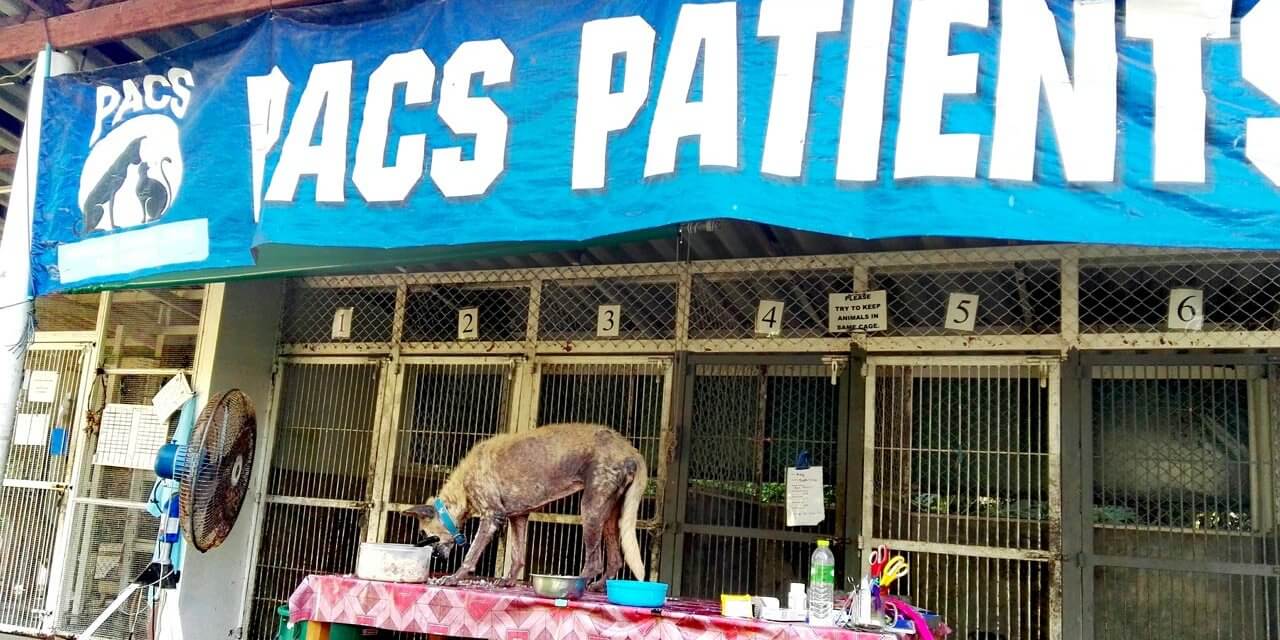The veterinarian and founder, Shevaun Gallwey, visited the beautiful island of Koh Phangan in 2000 for three months. Already at this time she was clear that the free-roaming or stray animals, especially dogs and cats, urgently need their help.
Phangan Animal Care - Review
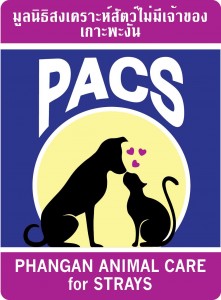 With the help of local residents, tourists and long-term resident foreign residents, she traveled twice a week to the entire island to help the sick animals (and sometimes humans). The treatment was self-financed drugs. The uncontrolled population significantly limited them through regular sterilizations and castrations.
With the help of local residents, tourists and long-term resident foreign residents, she traveled twice a week to the entire island to help the sick animals (and sometimes humans). The treatment was self-financed drugs. The uncontrolled population significantly limited them through regular sterilizations and castrations.
A loyal friend by her side became Jill Robinson, an associate of Animals Asia Foundation, She gave Shevaun the idea of starting a nursing clinic and offered to help her financially through her organization.
On 22.September 2001, Phangan Animal Care (PAC) opened its doors as the first animal sanctuary on Koh Phangan.
In the years 2001 - 2008, the station was operated on the grounds of Koh Phangan's only colleges. The property and the location of the school was formally offered to create additional areas for the employees there. A large classroom was made available to hold the necessary training programs for volunteers. During the political turmoil in Thailand, the school was asked to terminate the lease with PAC. This happened in the year 2007.
Shevaun Gallwey set out with the thought “That couldn't have been all” and collects the enormous sum of 5,7 million Bath over the next six months at appropriate events. In March 2008 PAC was able to buy the land on which it operates today. The existing buildings were renovated and refurbished and the move was completed three months later.
In November 2008 opened the first veterinary clinic, operated by Dr. med. Phong, their gates. She especially took care of the animals that have an owner. Thus, PAC could now only take care of the free-roaming and stray animals.
PAC (Phangan Animal Care) became PACS (Phangan Animal Care for Stray).
In the year 2013 a board was elected for PACS. This consists of Nira, from Niras Bakery, as treasurer, her son Jak as president, Phan vom Run Arung Resort as responsible secretary as well as Sye vom Beck's Resort and Goneo from Kodak shop as directors.
In the year 2014 construction began in the back of the PACS property. With the financial help of an anonymous donor and Bright Life Australia, and, above all, with the help of volunteers, a series of bungalows for volunteers and volunteers were created there.
After complaining about the noise nuisance by the patients of the clinic, PACS 2016 had to put up a soundproof cage row. This was also funded by donations and built with the help of volunteers.
Who is PACS?
The heart and soul of PACS are a handful of permanent employees. Supported by volunteer nurses and clinic assistants, as well as volunteers and volunteer helpers, a main nurse works tirelessly to care for and heal the sick animals so that they can participate in normal life on the island after their recovery. The organizational work and other necessary planning inside and outside the clinic are carried out by the administrators in tireless small-scale work.
What is PACS actually doing?
Probably the most challenging task of PACS is to provide the sick and those in need of care with no owner Help and medical support .
If this cannot be done on an outpatient basis, these animals are cared for in the small clinic for the necessary time. There PACS is also able to treat seriously injured and very sick animals. Not only cats and dogs, but also other wild animals. For example, birds like eagles or owls, wild boars and sometimes reptiles.
Typically, after recovery, patients are released back to the place where they were found. In many cases, the healthy animals are also brought to the island's temples, where they are observed during regular home visits and, if necessary, further medical treatment and care. If it is to be expected that an animal will no longer be able to look after itself on the street, PACS tries to find a new home for it together with some other organizations on site. From time to time there are also very special cases, these then become permanent residents of the PACS site.
Skin diseases and wound infections are the most common problems. Due to the humid / warm climate in Thailand, small wounds can grow into life-threatening infections. Parasitic skin mites cause itchy and painful skin conditions in which the dogs fall out of their hair and they are littered with the constant scratching of open wounds. The supply is very costly and time consuming.
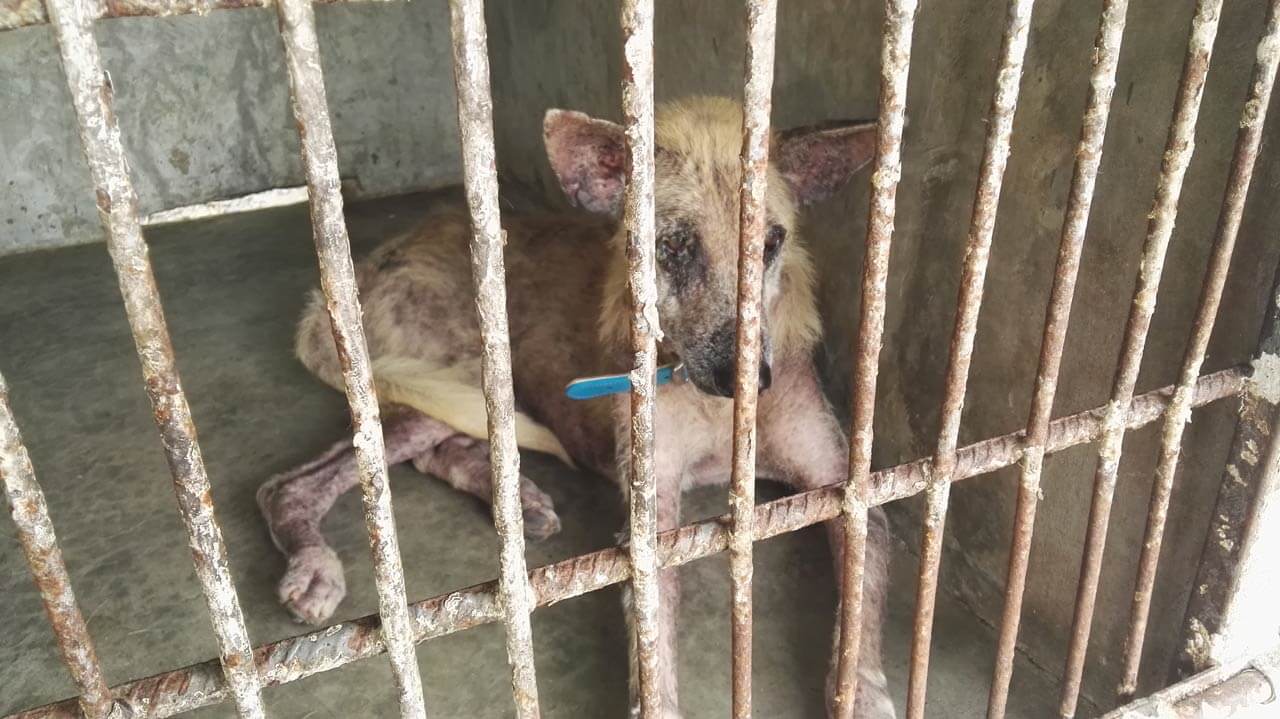
The population control - the greatest task of all! A Thai bitch comes into heat twice a year. In the event of pregnancy, and the rate is well over 90%, she then gives birth to 6-8 puppies each time. You don't have to be a mathematician to see what that would mean for Koh Phangan!
Before PACS began its work, the government inevitably ordered regular "culls". This means that poison baits were laid across the island. Depending on the dosage of the poisons, this means an agonizing and very painful death for the animals concerned.
That could not and did not want to accept PACS. Regularly large-scale sterilization and castration actions are organized.
In February 2014 visited Lanta Animal Welfare Koh Phangan, in the places Baan Tai and Haad Rin Total 331 dogs sterilized.
In July 2015 were in the so-called 100 in 3 action, 100 animals sterilized in 3 days by a team from Hong Kong. To ensure the official character, our local veterinarian Dr. Yothin the action. He deserves it, and for his tireless dedication to PACS special thanks!
Soi Dog Foundation 2018 made a remarkable move castrating around 1400 dogs and cats, mostly dogs. The team stationed at three different locations for several weeks each. They caught strays and, without asking questions, took every animal that was brought to them.
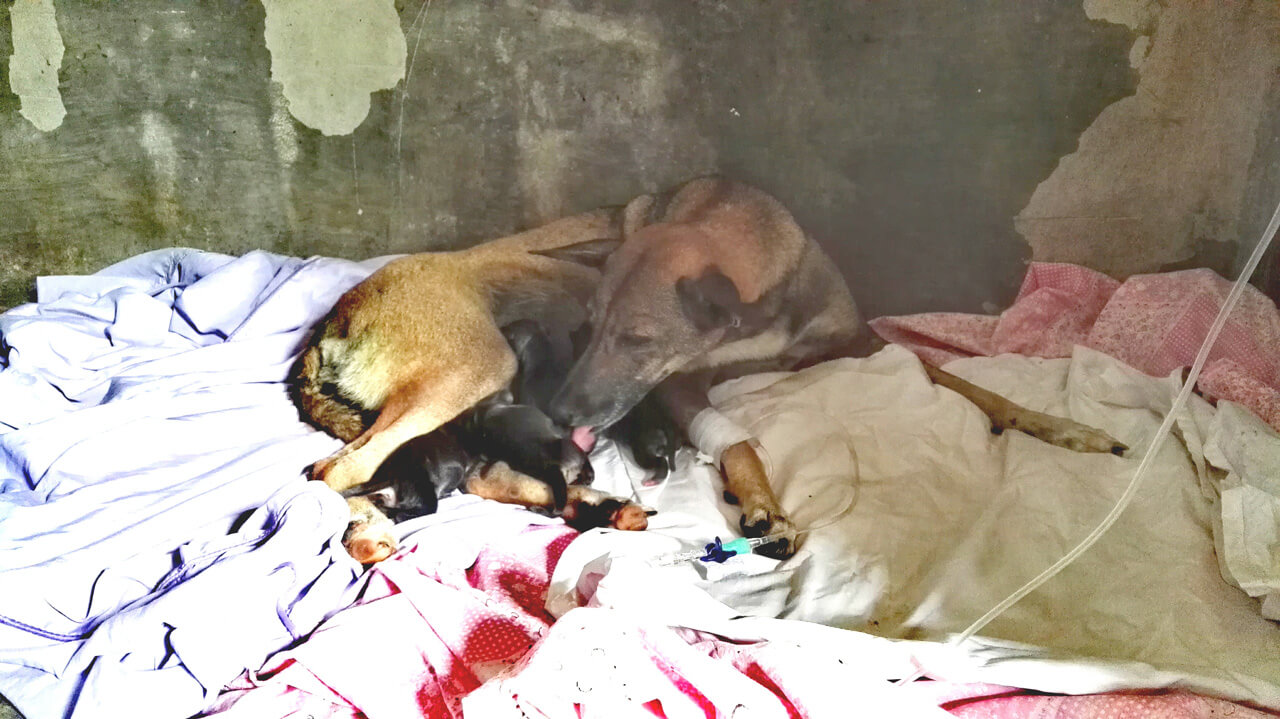
You could say that every dog and every cat gets their hands on PACS.
This, followed consistently from the beginning vaccination concepts actually saves lives - of humans & animals. There has been no case of rabies on Koh Phangan for 12 years! At the same time, the animals are also given the standard vaccinations and protection against ticks and fleas is given, as these are the carriers of many diseases. Tick fever is widespread in dogs, and if recognized too late, it can lead to paralysis and death.
Immediately next on the list Injuries in traffic accidents, Koh Phangan is a touristically developed island. The resulting traffic is getting bigger and thus the accident risk. Often amputations and complex operations are needed.
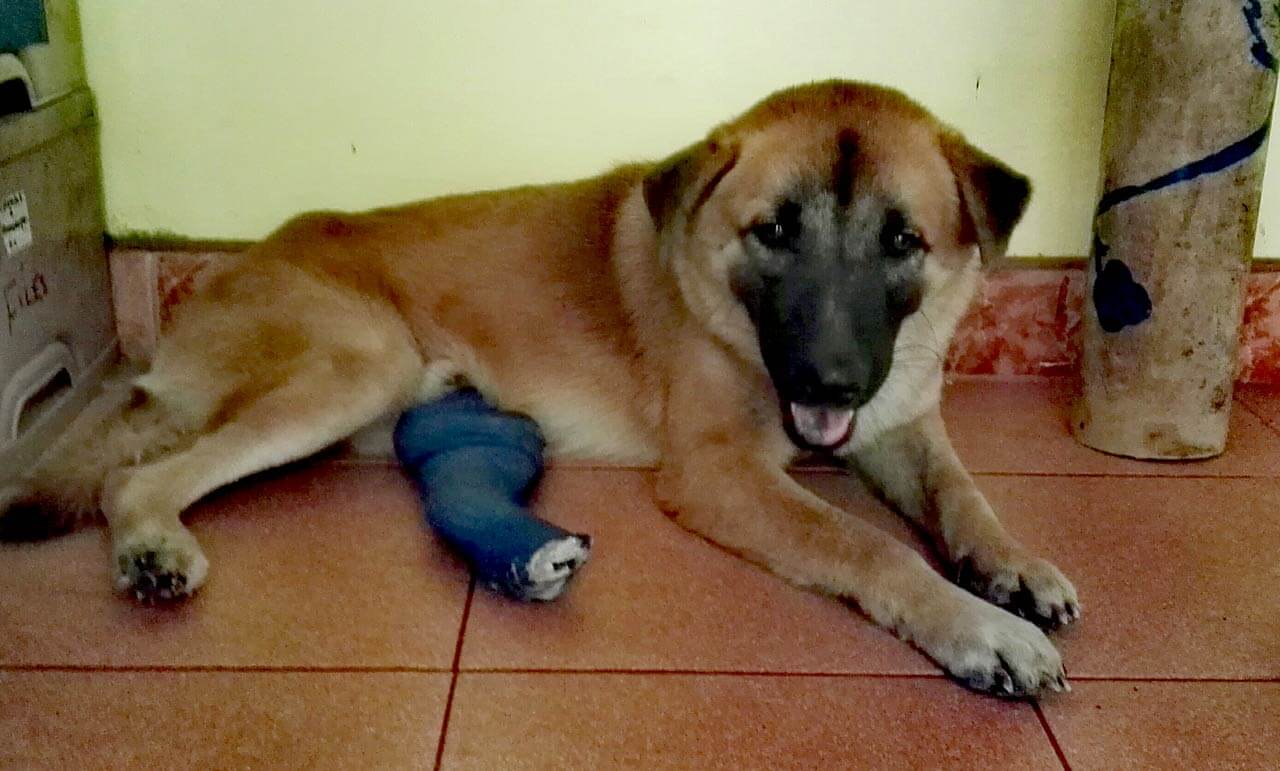
HOW is PACS financed?
PACS relies on donations to 100 percent.
It helped and helped various organizations to make PACS what it is today. Financial grants donate regularly Animal Asia Foundation, Bright Life Australia, WSAP (World Society for the Protection of Animals) and RSPAC (Royal Society for the Prevention of Cruelty to Animals). The donation boxes of PACS are scattered all over the island in innumerable restaurants, shops, bars, party locations and markets - at this place a heartfelt thank you to all donors.
The First Western Medical CenterAnd the Pantip pharmacy support PACS regularly with consumables and medicines. This is also done by people from all over the world where they send well-filled packages. The Phangan Bicycle Tours based in Thongsala has taken PACS firmly in their tour program. Sören and Chris are strong supporters and bring their customers closer to the meaning and work of PACS. Lots Artists who visit Koh Phangan or live here donate their works or part of the proceeds.
PACS is open from Monday to Friday for Visitors open. On site, guests experience the true life of the "animal world", with all the ups and downs. The reality may not be nice to look at, but the importance of the work done by PACS is all the more obvious.
The Outlaws saloon and the sports bar Food Factory, both located on the main road to Baan Tai, repeatedly help with invitations to lunch and / or dinner for the sterilization teams and staff and helpers. Many other restaurants create special offers whose proceeds they then donate.
PACS itself regularly conducts fundraisings. Together with operators of local restaurants and bars, they organize parties, raffle, singing and all the trimmings. The companies in turn are donating the proceeds of this evening to 100 percent of PACS.
WHAT NEEDS PACS TO SURVIVE IN THE FUTURE AND WHO CAN HELP?
Since PACS, as I said, is funded by 100 percent donations, it is an important goal again to find one or two main sponsors, who regularly cover the monthly fixed costs.
Most important, however, are the humans! People like you and me, People who recognize that an animal is a living thing, it gets sick, it suffers and it has feelings. Every donation, every helping hand is valuable and important and most welcome.
Put PACS on your activity list, get to know the patients and their stories, tell you how Piggy the pig landed at PACS and get an idea of the great work of the team.
